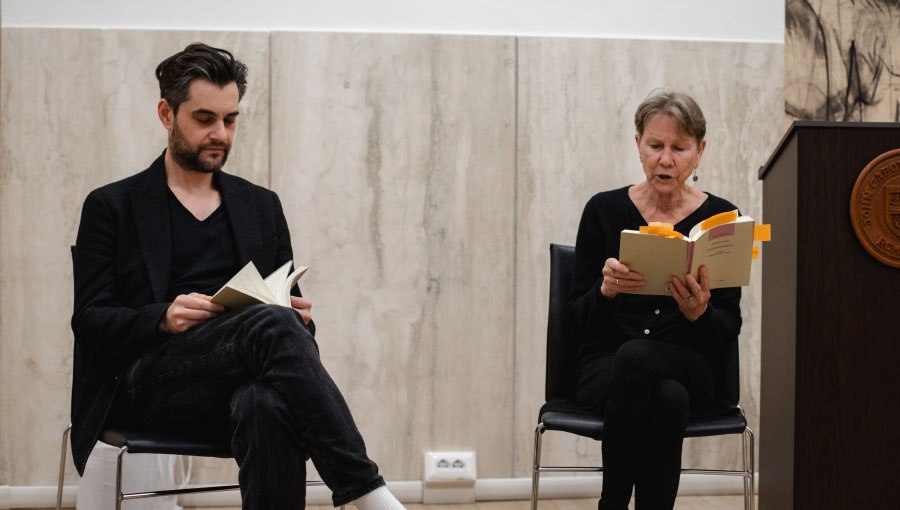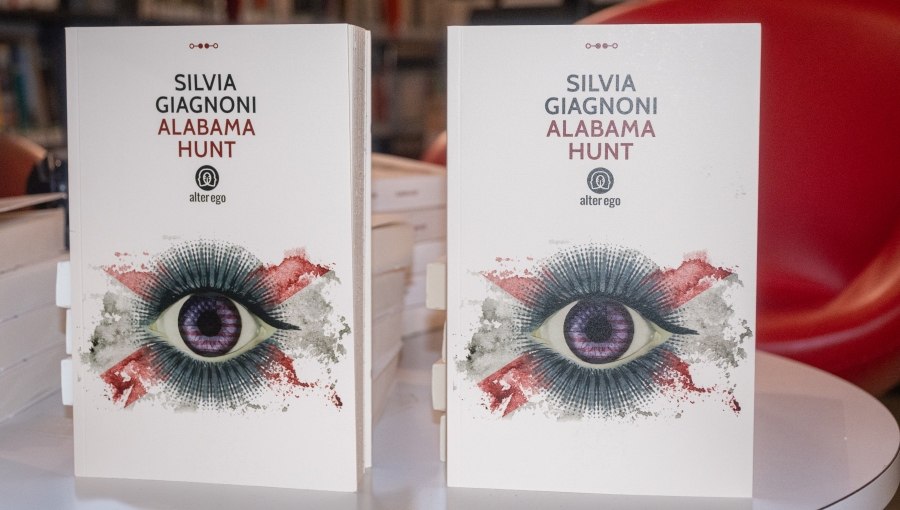JCU Creative Writing Institute to Welcome James Arthur as Summer 2022 Writer in Residence
John Cabot University is pleased to relaunch the Institute for Creative Writing and Literary Translation in Summer 2022 and to welcome prize-winning Canadian-American poet James Arthur as Writer in Residence.
James Arthur is the author of The Suicide’s Son (Véhicule Press 2019) and Charms Against Lightning (Copper Canyon Press, 2012). His poems have also appeared in The New Yorker, Poetry, The New York Review of Books, The American Poetry Review, The New Republic, and The London Review of Books. He has received the Amy Lowell Travelling Poetry Scholarship, a Hodder Fellowship, a Stegner Fellowship, a Discovery/The Nation Prize, a Fulbright Scholarship to Northern Ireland, and a Visiting Fellowship at Exeter College, Oxford. Professor Arthur lives in Baltimore, where he teaches in the Writing Seminars at Johns Hopkins University.
JCU’s Web Communications staff recently interviewed Professor Arthur.

James Arthur
How would you describe your latest poetry collection The Suicide’s Son?
Many of the poems in The Suicide’s Son are about childhood, parenthood, or both. Others are about violence, storytelling, and the question of what it means to be a human being as opposed to an animal. Throughout the book, these themes come together in various combinations; overall I wanted to dig into the question of how we grow up and become who we are. Most of the poems in my previous collection are very compact and jump abruptly from one idea to another in order to create a sense of dislocation and anxiety. Writing The Suicide’s Son, I set myself the task of writing long, patient poems that would allow me to explore feelings and ideas in a more sustained way.
What poets have most influenced you?
That’s something that has often changed and will continue to change, I hope. A few of the poets whose work I return to are Yeats, Auden, Rilke, Millay, Cummings, and Bishop.
What makes a good poem?
Something I like in a poem, either my poem or someone else’s, is the feeling that it’s pointing toward a connection that I’d already sensed but which I hadn’t been able to articulate, even to myself. Reading such a poem, I think “Ah, yes! That’s what I feel!” Also, I love poems that communicate rhythmically as well as through the meaning of their words, so that the poem’s sound and structure can cast a kind of spell over the listener and can free the words from their everyday associations.
How would you describe the role of poetry today?
For me, poetry is a kind of anti-Twitter: a place of solitude and quiet, in which an idea can be pursued honestly, with a tolerance for ambiguity. I think that right now, the conditions of our society make it hard for people to find a sense of calm in which they can just listen and wonder; instead, people are pushed into continual confrontation with one another, and that is the environment in which totalitarian demagogues like Donald Trump can thrive. Poetry can’t fix all of our problems. I don’t know that it can fix any of them. But for me, a poem is a place of questioning. It represents a search for meaning and truth. That’s why it matters.
What is your teaching methodology? Can poetry writing be taught?
Yes, absolutely! Poetry writing definitely can be taught, just as painting, musical composition, acting, and filmmaking can be taught. When you teach artists, you need to challenge them, inspire them, deepen their technical understanding, and above all push them to expand beyond the boundaries of what they already know how to do. Just as I would never tell students what to write about, I never consciously evangelize for one particular literary style or another. Instead, I try to present students with many new ideas, and I push them to experiment. My job is to show students what’s possible, then encourage them to be bold.
JCU’s Creative Writing Institute will be welcoming you in Summer 2022 as Writer in Residence. What are you most looking forward to about this experience?
I’m honored to have the opportunity to serve as JCU’s summer Writer in Residence. I can’t wait to meet the students, staff, and faculty of the Creative Writing Institute. And of course, I’m also thrilled at the thought of spending two months living and writing in Rome. I was in Rome for 5 or 6 weeks exactly 20 years ago, during the summer of 2002, and I’ve always wanted to return. Rome feeds the imagination like no other place I know.





